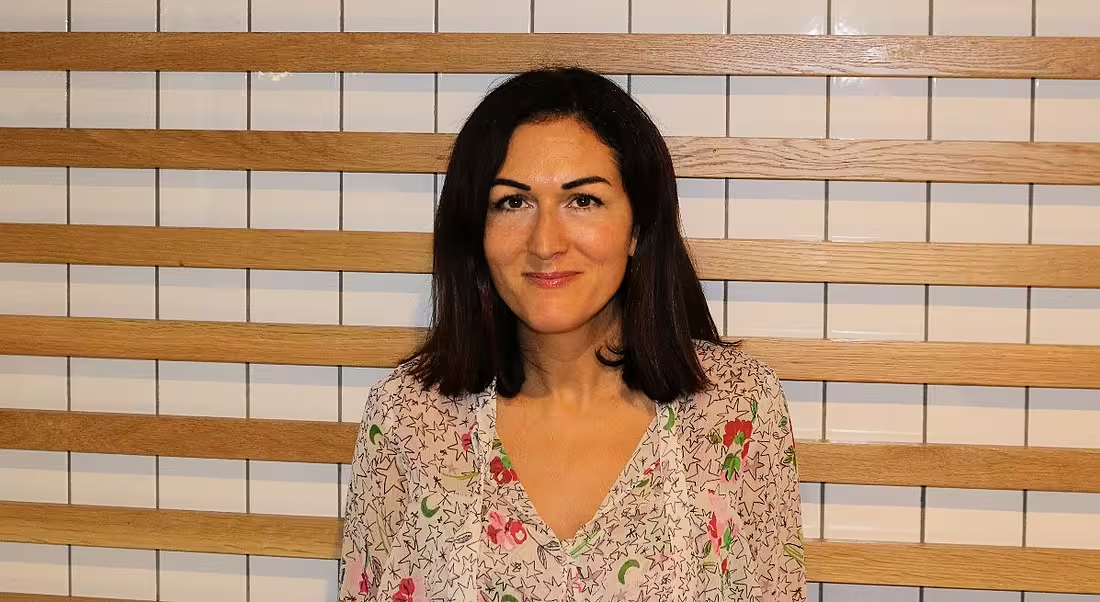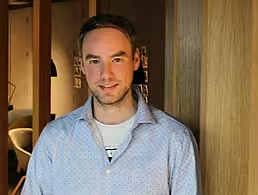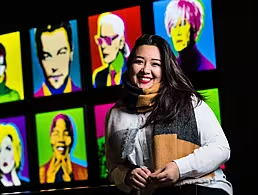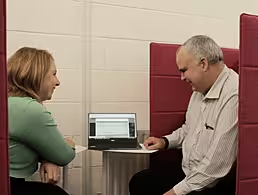Patricia Gonzalez, a customer experience manager at Slack, details her career journey and how the firm has fostered her creativity.
It’s difficult to think of a person who wouldn’t want to know how Patricia Gonzalez got to where she is today. After years of studying English and linguistics, and a stint teaching Spanish, Gonzalez weaved her way through some of the most trailblazing tech companies around – such as Facebook and Airbnb – before arriving where she is now, working at Slack as a customer experience manager.
For Gonzalez, there’s no better place to be, either. At Slack, she has found the culture of nurturing talent and allowing people to fail to be absolutely perfect in helping her star continue to rise. We sat down with her and chatted about how she got to where she is now.
What first stirred your interest in a career in customer service?
When I was a high-school student back in Spain many years ago, educational institutions did not provide a very robust support system to help teenagers navigate their further education choices.
I knew I liked English, communication and helping others, and I equated that to a career in teaching and that’s the path I followed.
After teaching Spanish for a while, I realised that was not where my heart and passion was at, and I decided to try something different: customer experience.
Something clicked then; I felt that my passion for communication and helping could be better exercised in this realm.
As I progressed to people management roles, it gave me the opportunity to experience coaching and then I had my ‘Aha!’ moment: helping develop great people in the workplace is what I want to be doing.
What education and other jobs led you to the role you now have?
My educational journey started with a five-year degree in English literature and linguistics, followed years later with a three-year people management diploma.
I’ve been lucky to work in organisations with a flair for continuous improvement (Facebook, Airbnb and now Slack), which have built incredible internal support systems of learning and development for managers, so I had a lot of in-house training and support that has continued into my current role.
My biggest education, however, hinged on the abundance of strong mentors and role models who I’ve encountered over the years. They were generous with their time and were model examples of leadership, which I admire and can totally subscribe to.
Others have also showed me the type of leader that I don’t want to be, so, all in all, picking an organisation with an ethos of continuous improvement and a big commitment to growth is the key to find all this wealth of real-time experience.
What were the biggest surprises you encountered on your career path?
For eight years, I worked in different roles at a company with a pretty structured, static, corporate environment and, straight after that, I made the move to this little start-up called Facebook (well, it was little in 2009).
At that time, I believe we were about 50 people in their Dublin operation. In this scrappy environment, I stumbled upon the reality of aggressive hyper-growth, constant creative critical-thinking requirements and full empowerment on decision-making.
Smart, young people around me were executing at the speed of lightning, exactly at the same speed that the company was growing. I’ve been able to apply what I learned in other high-growth environments at Airbnb and, more recently, here at Slack.
Adaptability and the ability to scale yourself (your actions, your decisions, your execution) at the same rhythm as the company was both a challenge and a tremendous learning curve for me, purely because it branches into other areas such as building self-confidence, change management and personal agility, and also because my scope included helping others navigate this volatile environment alongside me.
I look back at that time fondly, as a rollercoaster of feelings and learnings that really marked who I am today in any organisation.
Moving from a large structured environment to a hyper-growth company taught me that there is always untapped potential you did not know you have.
Was there any one person who was particularly influential as your career developed?
The first obvious choice is my mother. She has very rarely understood my career choices in terms of mobility, but has sheer blind faith in my gut feeling and judgement, so this has propelled me to follow my instincts.
In Steve Jobs’ words: “You have to trust in something: your gut, destiny, life, karma – whatever. This approach has never let me down and has made all the difference in my life.” I can totally subscribe to this!
My first manager taught me it is never too early to build a solid personal relationship with your team and foster and nurture that human connection. It goes a long way to build trust and foster radical candour.
Sheryl Sandberg is another truly inspirational figure. What I admire about her is her passionate commitment, her ability to build rapport with any audience and her relentless advocacy of women in the workplace. To me, her approach to leadership reinforced the importance of building dynamic teams with complementary skills so thought partnership can be disruptive and more creative, ultimately leading to better results.
As building emotional resilience in the workplace is top of mind for me at the moment, she continues to lead the way, inspiring me with her Option B programme.
What do you enjoy about your job?
Where to start? I love that no day is the same. In such a dynamic environment, each day might bring a new challenge.
I love that part of my role is to stay really connected with our users and experience first-hand the work that my team does, day in and day out.
I love that Slack’s philosophy of leadership is really aligned with mine. We use coaching and mentoring rather than just management to motivate, guide and develop happy human beings.
I love that part of my role is to continue to scout and bring on board talent who will do great things and transform the product while keeping our internal culture top of mind.
I love that my peer group is a contact source of support and collaboration rather than competition.
Finally, I love that mistakes and failures are really used in a very constructive and positive way as big learning opportunities. I love the environment I work in, and how the different support functions show up big time for each other.
What aspects of your personality do you feel make you suited to this job?
I am a bit of an introvert, so I thrive on listening to people. I think my friends would agree with this.
Active listening, I believe, is one of the skills that has allowed me to become a better leader and a better human.
I like to analyse emotions, feelings and thought patterns, and try to understand how they inform the way we act and react, and how to best rein the power within us to change them and shape them for better outcomes and happier individuals.
I have a nurturing and caring side to me. Another thing that I have heard over the years is that I have a calming influence on people – a bit of a harmoniser, according to the ‘strengths finder’ test.
How did Slack support you on your career path?
Slack has a continuous improvement ethos that propels the way each of us works and wants to thrive.
As such, there has been a massive emphasis on building a strong and diverse learning and development curriculum that accommodates a wide range of skills growth and career development.
Looking for managers with a strong background in coaching is another thing that Slack is actively doing to build a solid support system across the different levels and functions.
Finally, empowerment is really critical to the way we operate at Slack. I am trusted to be part of the decision-making process, and have enough autonomy to try and drive change and improvement.
I have permission to fail and to learn in the process, and a strong peer group that constantly exchanges experiences and learnings.
I am so lucky to have a manager that turns every interaction into a coaching opportunity, strongly believes in feedback, and is able to see potential in me that I don’t and encourages me to explore it.
When I think about the words ‘career ladder’, they sound very linear to me, so I’d rather think of it as a ‘career journey’. Journeys are full of deviations, shortcuts, scenic routes and meanderings, and that’s how I love to perceive what is ahead of me.
What advice would you give to those considering a career in this area?
Customer experience has traditionally been looked on as low in the pecking order of company functions, and it could not be further from the truth.
I believe customer experience allows someone starting on their professional journey to build on certain soft skills which are extremely critical to be successful later, not only in any line of work, but in life: empathy, active listening, negotiating skills, handling difficult situations, feedback.
You become the representation of a brand to your users. That is no mean feat and definitely something to be proud of – don’t let anyone tell you otherwise.
Think about, from a consumer perspective, the brands and customer experience interactions that have made an impression on you, and try to replicate that feeling in every single interaction with a user. You have one unique opportunity to build loyalty, engagement and, frankly, just to make someone’s day.
Want to work at Slack? Check out the Slack Careers page for current vacancies.




